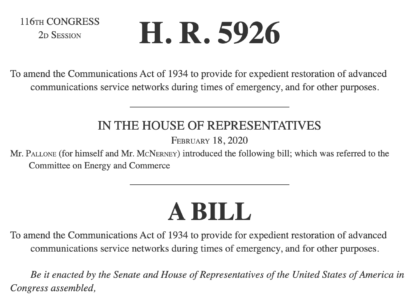Recent storms in Texas and wildfires in California have highlighted the need for legislation that will keep cell towers operating for longer periods while people react and recover, notes Energy-Storage.news. Mandating the use of batteries with 24 hours or more of power would allow emergency services to keep running, and could be a life saver in a crisis situation.
The Resilient Networks Act proposed by the House Energy and Commerce Committee in 2020, would require advance coordination among communications providers and emergency services organizations for roaming and mutual aid arrangements to kick in during times of emergency, Inside Towers reported. The Act is scheduled for reconsideration later this year. The legislation would also have mechanisms in place for network outage data to be provided to first responders as they assist with disaster response.
California, a state with a wealth of experience in disaster response, is already addressing these concerns and recently approved a measure stating that batteries providing up to 72 hours of back-up power were needed, according to Energy-Storage.news.
Managing the FirstNet emergency services in the state, AT&T has said it’s investing $340 million over the next three years to make sure all of its facilities are equipped with appropriate back-up batteries.
Traditional lead-acid batteries supply many cell towers with their back-up capabilities, but lithium ion (Li-ion) batteries are becoming common, reported Energy-Storage.news. Some towers have older diesel generator sets powering back-up operations, but these systems can be problematic and can have a lingering negative effect on the environment.





Reader Interactions